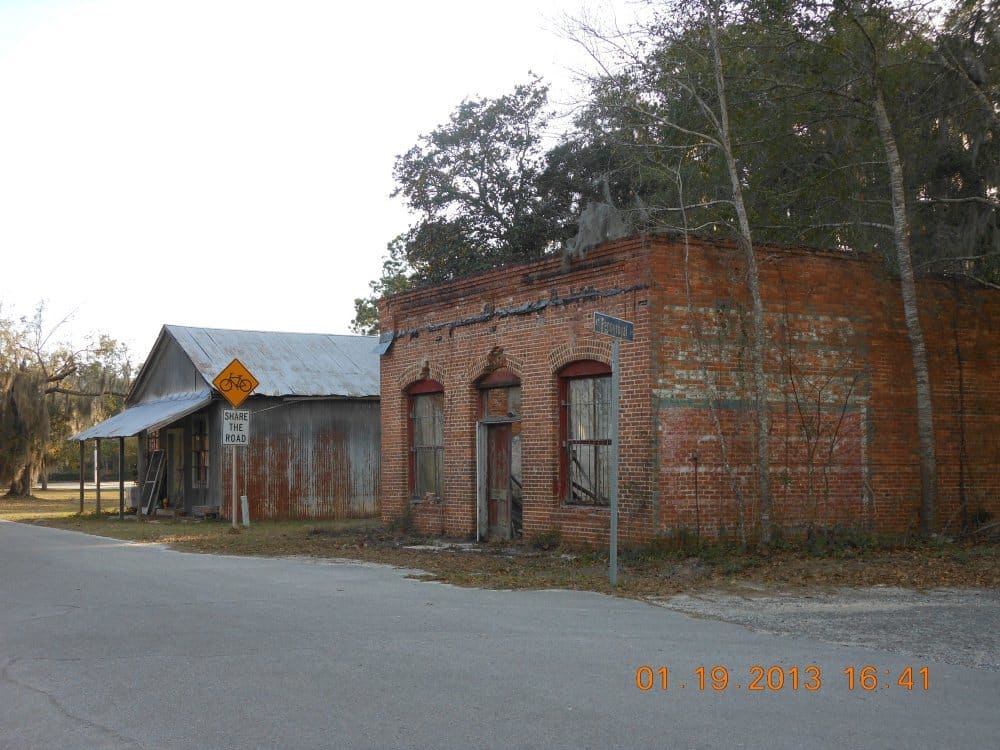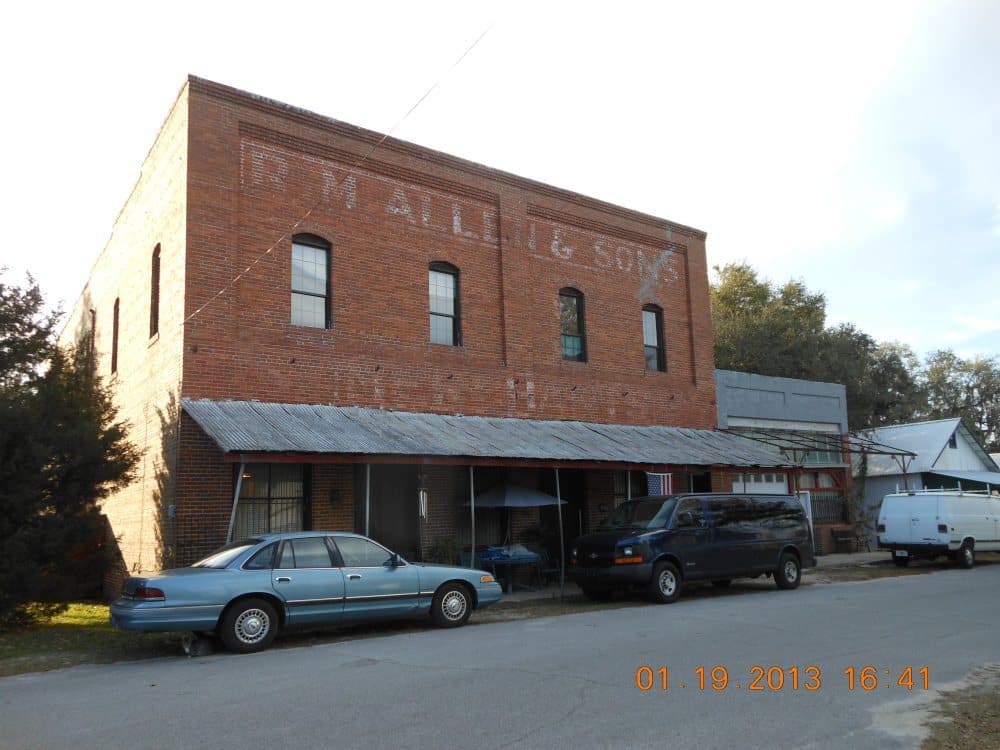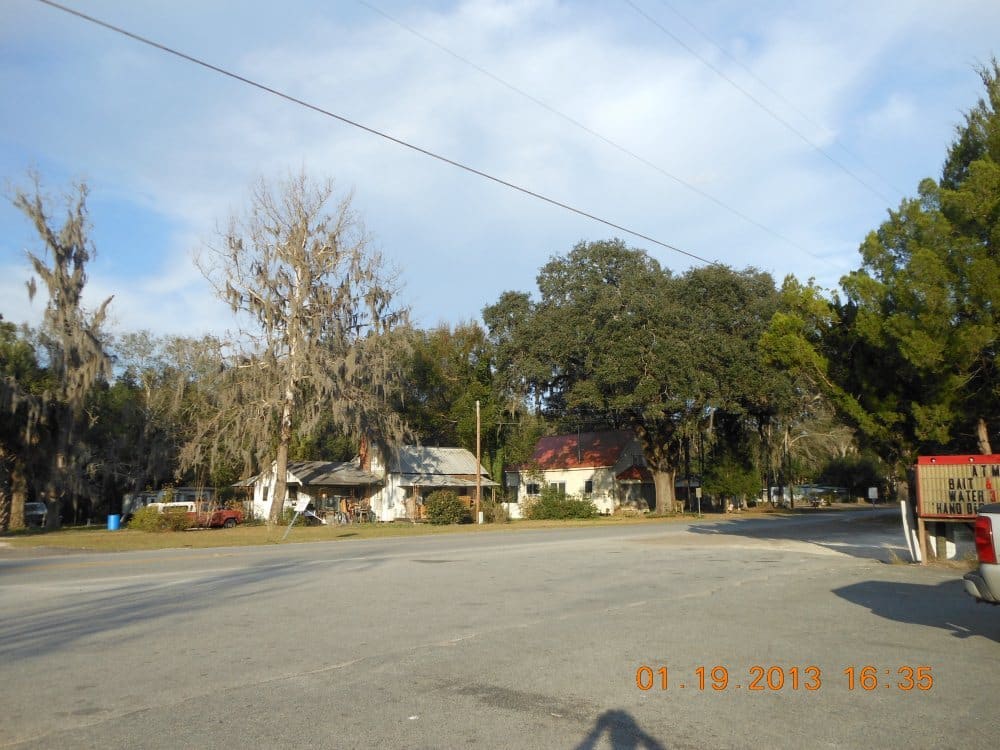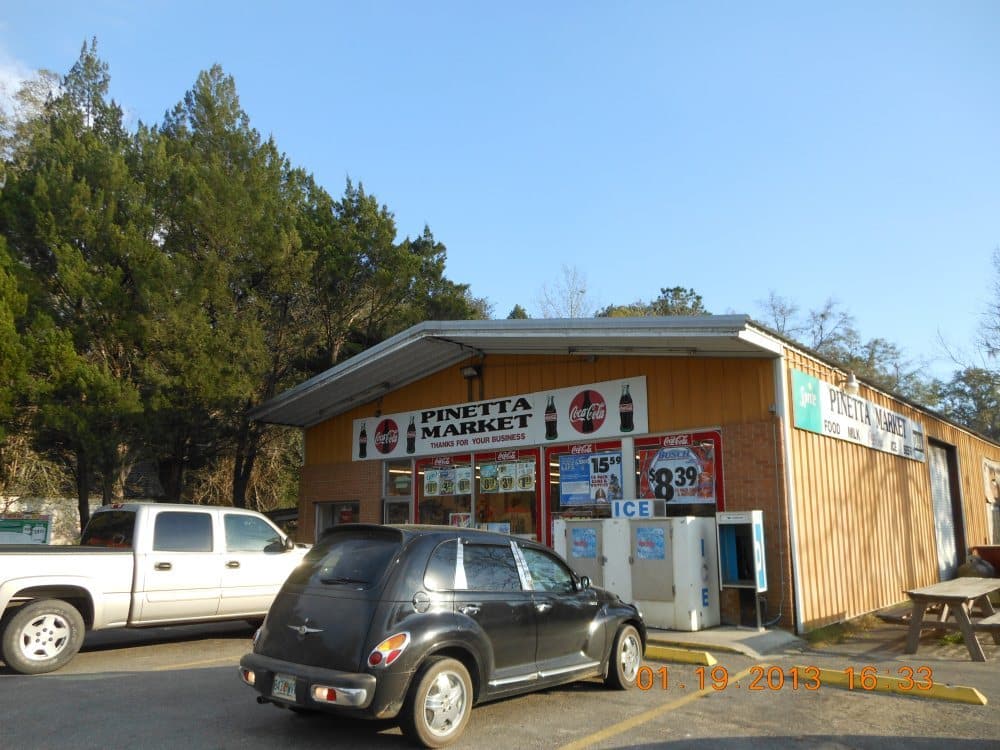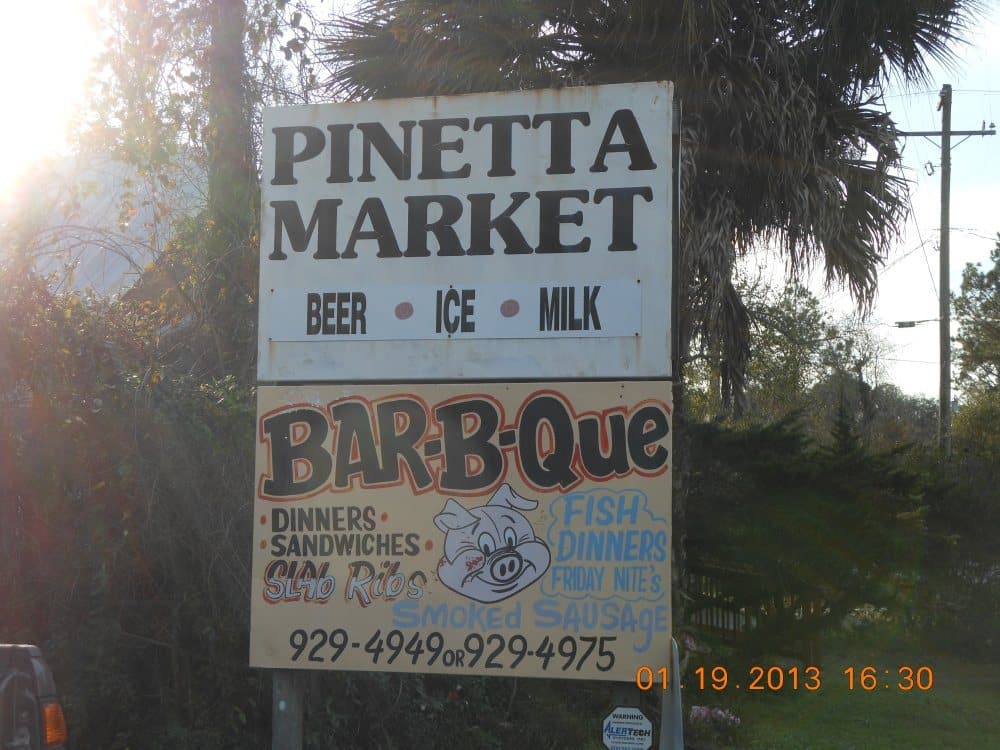John Owings had married Rosa Neal and within an appropriate time Little John, the first of three brothers, was born. John Owings was destined to die young but at the time of our tale he was in the prime of life and had a good job with the railroad which was about as secure as jobs got back then. His step-brother, Vestus Tankersley, had been in the Fighting 69th during the war and returned with wounds and a small pension. Little did Vestus know at this time that he would one day marry his step-brother’s widow and Uncle Vestus would one day become the step father of Little John but I get ahead of myself.
When Vestus, who was a bit of a an adventurer, heard that land was free for the taking in Florida, he began trying to convince his closest friend and step-brother that this was an opportunity not to be denied. And when John Owings agreed to go to Florida his wife said she just hated Vestus for starting this. It would take many years and the death of John to turn that hate into a lasting love but again I get ahead of myself.
A plan was devised and a strategy put in place. John, Rosa (Mama T), Little John and Vestus would take the train as far as it went using John’s railway pass. The bustling little town of Pinetta (this is pronounced with a short e, though until we actually got there Jan’s family had always used a long e) located just across the Georgia-Florida border was where the train let off our travelers. They would claim two adjoining sections of land for a total of 80 acres as both men could claim their own section. Then they agreed to merge their land and Vestus would work on clearing the land while John supported them all by continuing to work on the railroad. They walked to their claim and set up a tent where they lived while a small cabin was constructed. Vestus was an accomplished carpenter and would one day assist his step-brother in building a home in Miami but again that is way in the future.
This was truly wild country. Undergrowth so thick you had to hack your way through, dangerous wildlife all around and mosquitoes, biting flies and gnats making the hot weather almost unbearable. Yet these inexperienced pioneers persisted until one day when Little John met the rattlesnake.
John and Vestus had left early one morning on the wagon to ride into town and pick up supplies leaving Rosa and Little John at home alone. Their water came from a nearby creek as they had not yet tried to dig a well. So when Rosa needed freshwater to do the day’s chores she bundled up Little John and sat him in a pull wagon to walk down the path to the creek. Somewhere along the way she heard the sound that strikes fear into every heart; a huge rattlesnake was sunning beside the path and began his deadly rattle prior to striking.
Rosa was so nonplussed that she screamed and fled back to the house only to discover that she had forgotten one very important item. Little John, her precious baby, was still sitting in the wagon! Grabbing a hoe she rushed back praying that that Little John had stayed in the wagon and that the snake had not struck. When she arrived Little John was still sitting in the wagon seemingly fascinated with the snake which was just as fascinated with the boy. She did not kill the snake, being too afraid of missing with the hoe and causing it to strike the child. So she carefully grabbed the body of the wagon and slowly pulled it backwards away from the alert snake. Once she had pulled it a safe distance she snatched the baby up and ran back to the cabin where she began packing her meager belongings.
When John and Vestus returned they faced the world’s most fearsome sight, an aroused mother! Rosa stated in no uncertain terms that she and Little John were leaving on the next train and returning home. John could stay or go as he pleased and she did not much care what Vestus did as he had gotten them all into this mess in the first place.
The men knew that argument was futile and they needed to discuss the matter in private so they retired outside to try and formulate some plan. John realized he had no choice. If his wife and baby left then he had to leave. But they had invested everything they had in trying to tame this land and could not just toss it aside. Vestus agreed to stay and try to work the land alone. John would send money when he could and perhaps things would work out.
So Rosa was placated and soon on her way north with her husband and child. Vestus remained behind and did his best in the unforgiving climate. But it did not last long for it was too lonely an existence. Thus the land was abandoned back to whatever entity had granted it in the first place. There are no deed records to search because title was never passed to our settlers. In fact Jan’s family had wrongly believed until this very week that the settlers had been at another town, Pineda (this one with a long e), located on the east coast near Cocoa Beach. Jan’s father Neal, second born and named after mother Rosa’s maiden name, often laughed about how valuable that 80 acres of oceanfront property would be today. I even wrote about this on our Loop when we passed the area last winter.
It was not until this past week when we were attending a Gold Looper Reunion that Jan began to study the map of Florida a bit closer. First, she found two Pinettas in Florida which was a bit unusual. Actually one on the the east coast spelled Pineda and the other was just off I-75 near the Georgia border spelled Pinetta. There was no railroad at the time of our story that ran anywhere near Cocoa Beach because Flagler had not gotten that far yet with his Florida East Coast RR.
There was a railroad near the other Pinetta but the map we had did not show it going there for a very good reason we would discover upon our arrival. It also seemed unreasonable that a mule drawn wagon with milk cow, pigs and chickens could make such a trip all the way down to what is now Cocoa Beach. It would be more reasonable to think it made it just across the Georgia line. And why would anyone be giving away coastal land where weather and salt would not be conducive to great farming. And finally, the movie, the Yearling with Gregory Peck, took place in the area near the inland Pinetta where crops could be grown in the rich sandy soil.
So on our way home Jan wanted to detour to try and find this elusive Pinetta. It seemed a simple request but circumstances made it more difficult. One, the highway maps do not show all the maze of backroads in the area, most of which are not paved. Two, we took a wrong turn and could not reconcile our map with the ground.
Before completely giving up I decided to consult a group of locals who were polishing a tanker trailer along the side of the road. They looked like they could have been here in WWI. Rough does not describe them. Beards and a layer of grime that indicated even Saturday night baths were shunned. Alas, they knew where Pinetta was and how we could get there. But before we could continue I got a tutorial in how to restore a polished aluminum tanker. It actually involves jeweler’s rouge. Jan did not participate but watched from the safety of the van.
First you sand it with an abrasive using hand rotary sanders. This produces an aluminum dust that settles on everything and everyone around thus accounting for the grey appearance of the men. Then you use jeweler’s rouge and a large buffer pad to finely polish the finish to a chrome like shine. And one day soon this tanker, which has sat idly corroding both inside and out since 1994, will be delivering milk to your local dairy bottler. As good as the outer finish looked when they were done, the inside had to be just as bad and no way to polish it!
So off we went following their directions deeper into the wilderness. I had been told that we would pass a bar called Betty’s and soon we found it just as poor Jan had a sudden onset of intestinal distress that was so sever she begged me to just stop on the roadside where there was no cover to be had in the scrub brush. For my modest wife to ask this meant she was in dire need. But I swung the van around in a U turn with Jan complaining and drove the 200 yards back to Betty’s. Jan cried out it was closed but I persisted and stopping in front I dashed to the door and flung it open. It was filled with men just like those polishing the truck and thick with smoke but we hustled in and Jan made it safely to whatever they called a restroom while I entertained the glaring locals with the story of the homesteaders. They were most interested and said we were welcome back anytime. Jan said the facilities were rough but clean, probably because few women ever graced the premises other than the bartender.
We toured the old town, visited the site of the train station and in only a short distance were across the Georgia border on a back road to Valdosta. All in a day’s work for intrepid explorers and veterans of the Great Loop and hopefully entertaining to you, our faithful readers.

